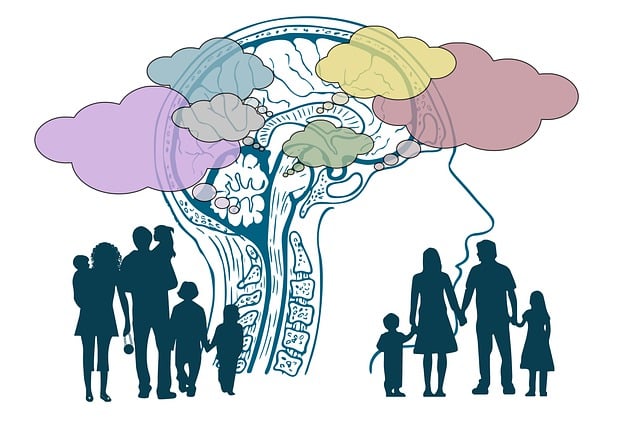Category: Family Mediation Strategies
Understanding Family Mediation Strategies
Family mediation is a structured, interactive process in which a trained mediator facilitates communication between parties involved in a family dispute to promote reconciliation, understanding, and resolution of conflict. This approach allows participants to have greater control over the decision-making process than if they were to engage in litigation. The core components of family mediation include:
- Neutral Mediator: A mediator who is impartial and does not take sides. Their role is to assist parties in reaching a mutually agreeable solution.
- Confidentiality: Mediation sessions are private, and information shared during the process is typically not admissible in court, providing a safe space for open communication.
- Voluntary Participation: Parties choose to engage in mediation freely and can withdraw at any point if they feel uncomfortable or wish to pursue other options.
- Self-Determination: The parties retain control over the outcome of their dispute, which is particularly important in family matters where emotional and personal aspects are significant.
- Focus on Interests, Not Positions: Mediation encourages parties to express their underlying interests rather than adhering strictly to their stated positions, facilitating more workable and satisfactory solutions.
- Communication Skills: Mediators often help parties develop better communication skills to interact with each other in the future.
- Empathy and Emotional Intelligence: The process encourages parties to understand each other’s perspectives, fostering empathy and emotional intelligence, which can be beneficial for ongoing family relationships.
- Cost-Effectiveness and Efficiency: Mediation can be less costly and time-consuming than litigation, making it an attractive option for many families.
Global Impact and Trends
Family mediation strategies have gained international recognition as a means of resolving family disputes. The global impact is evident in the increasing number of countries adopting mediation as a primary method of conflict resolution within families. Key trends shaping its trajectory include:
- Legislative Support: Many governments are enacting laws that favor mediation, often requiring it before parties can proceed to court.
- Cultural Shifts: As societies become more aware of the benefits of non-adversarial conflict resolution, cultural attitudes toward family mediation are evolving.
- Technological Integration: Online and virtual mediation services are becoming more prevalent, making mediation accessible to a wider audience.
- Educational Programs: Training programs for mediators are expanding, ensuring that qualified professionals are available to assist families.
- Cross-Cultural Mediation: The need for culturally sensitive mediation techniques is growing as families become more diverse and international in scope.
Economic Considerations
The economic aspects of family mediation strategies encompass market dynamics, investment patterns, and their role within economic systems. Mediation offers several economic benefits:
- Cost Savings: By avoiding lengthy legal processes, families can save on legal fees and related expenses.
- Productivity: Resolving disputes quickly allows families to move forward with their lives, reducing the economic impact of ongoing conflicts.
- Investment in Relationships: Mediation emphasizes the importance of maintaining family relationships, which can be a valuable investment in personal and professional networks.
- Economic Stability: By providing an alternative to litigation, mediation contributes to societal economic stability by reducing the burden on court systems and public funding.
Technological Advancements
The evolution of technology has significantly impacted family mediation strategies:
- Online Mediation Platforms: These platforms allow for remote mediation sessions, making the process more accessible and convenient.
- Communication Tools: Technologies such as video conferencing and secure messaging apps facilitate better communication between parties, even when they are not in the same location.
- Data Analysis: Advanced data analytics can help mediators understand patterns in family disputes, leading to more effective resolution strategies.
- Artificial Intelligence: AI is being used to simulate different conflict resolution scenarios, providing insights into potential outcomes of mediation.
- Future Potential: The future may see the integration of virtual reality for conflict simulation and augmented reality for visual aids in mediation sessions.
Policy and Regulation
The governance of family mediation strategies is influenced by key policies, regulations, and legislative frameworks:
- Mediation Accreditation: Standards for mediators ensure that practitioners are competent and adhere to ethical guidelines.
- Confidentiality Laws: Legal protections for the confidentiality of mediation sessions are crucial for maintaining trust in the process.
- Mandatory Mediation Laws: In some jurisdictions, these laws require parties to attempt resolution through mediation before litigation.
- Quality Assurance: Regulatory bodies oversee mediator training and accreditation to maintain high standards of practice.
- Public Awareness Campaigns: These campaigns inform families about the benefits of mediation, encouraging its use as a first step in resolving disputes.
Challenges and Criticisms
Despite its advantages, family mediation strategies face several challenges and criticisms:
- Bias and Power Dynamics: There is a risk of bias if one party has more power or influence over another.
- Lack of Access: Economic disparities can prevent some families from accessing mediation services.
- Training and Accreditation: Ensuring that all mediators are adequately trained and accredited remains a challenge in some regions.
- Ethical Concerns: Mediators must navigate ethical dilemmas, such as confidentiality versus the duty to report child abuse or neglect.
- Enforcement of Agreements: Mediation may result in an agreement that is not enforceable like a court order.
To address these challenges, ongoing training for mediators, public education campaigns, and improvements in regulatory frameworks are essential.
Case Study: Family Mediation in Action
A family mediation case study illustrates the process and its outcomes. The Smiths, a divorcing couple with two children, were able to navigate the complexities of custody, asset division, and support arrangements through mediation. By working together with a mediator, they achieved a mutually beneficial agreement that was tailored to their family’s unique needs. This approach saved them time, money, and allowed them to maintain a civil relationship for the sake of their children.
Conclusion
Family mediation strategies offer a valuable alternative to litigation, with benefits that extend beyond the immediate resolution of disputes. By fostering self-determination, cost savings, and improved communication, mediation can have a lasting positive impact on families. As technology evolves and regulatory frameworks adapt, family mediation is poised to play an increasingly important role in conflict resolution worldwide.
Mastering Family Disputes: Expert Tips for Harmonious Coexistence

Family disagreements are common, driven by differing values, communication issues, and external pres…….
Mastering Mediation: Tips for Resolving Financial Family Disputes

Mediation plays a crucial role in resolving complex mediating financial conflicts within families, w…….
Harmony Through Collaboration: Resolving Family Disputes

Family disputes are common but resolvable through understanding root causes like miscommunication, d…….
Collaborative Solutions: Mediating Financial Conflicts for Family Harmony

Family financial conflicts arise from differing spending habits and misunderstandings about shared r…….
Prioritizing Children’s Needs: Nurturing Safety During Family Mediation
Navigating Resolutions: Strategies for Peaceful Family Disputes Resolution

Family disputes arise from a complex interplay of miscommunication, unmet expectations, financial is…….
Fostering Bonds: Effective Mediation as a Conflict Resolution Technique

Effective mediation plays a pivotal role in fostering long-term relationships, especially when coupl…….
Cost-Effective Conflict Resolution Techniques: Uncover Roots, Empathize, Communicate

Conflict resolution within families begins with identifying root causes through active listening, wh…….
Collaborative Approaches to Resolve Financial Conflicts in Families

Financial conflicts within families are prevalent but complex barriers to harmony, driven by differi…….

